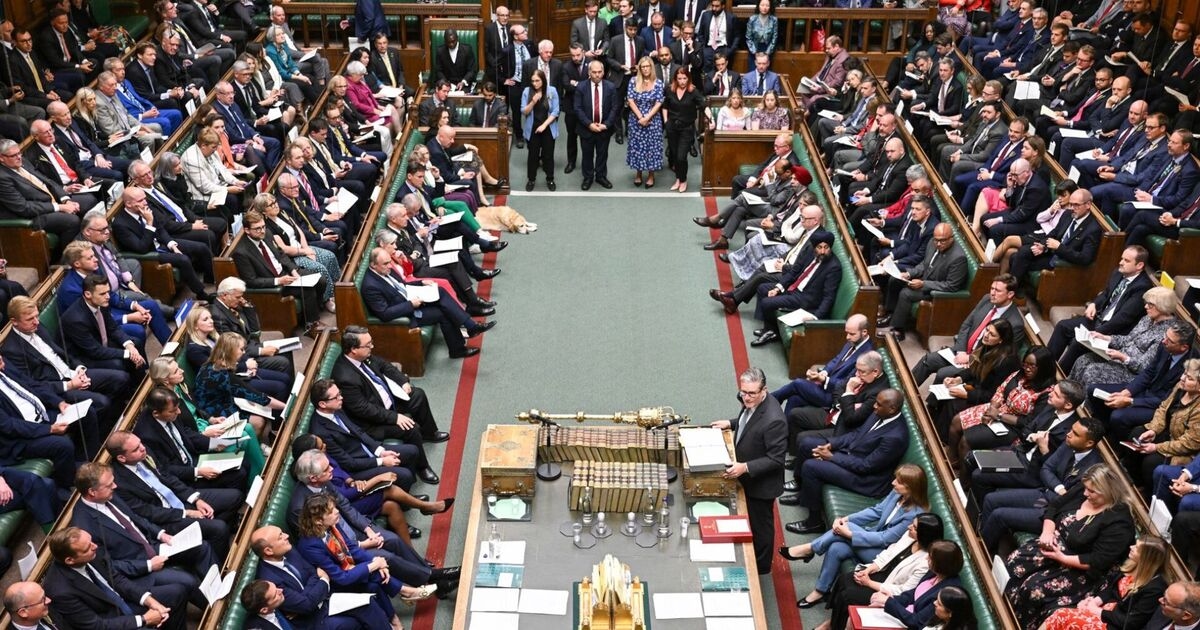UK Parliament no longer fit for purpose – House of Lords holds key to reform

The United Kingdom has long taken pride in being the birthplace of parliamentary democracy, the “mother of parliaments.” Ours is a system that has inspired the world, replicated from Westminster to Wellington, from Ottawa to Delhi. It has given voice to billions and helped forge one of the most successful empires in history. But what was once a model of representative governance has become a creaking relic. The parliamentary system that once elevated statesmen of vision and substance now produces mediocrity, cynicism, and paralysis.
The problem lies not in the structure of Parliament itself but in the quality and incentives of those who populate it. The entire Westminster model depends on the assumption that talented, capable people will put themselves forward for public service. From that pool, the electorate chooses Members of Parliament, and if one party gains a majority, its leader becomes Prime Minister. That Prime Minister must then select ministers, not from the most qualified Britons, but from a small and increasingly uninspiring pool of MPs.
Today, that assumption is no longer valid. The calibre of those entering Parliament has declined steadily over the past two decades, and with it, the competence of government. The reasons are not mysterious.
Politics has become an unattractive career path for anyone of genuine ability. The pay is uncompetitive compared to the private sector. The work-life balance is punishing. Public abuse is relentless, and tabloids now routinely drag politicians’ families, even their children, through the mud.
In short, why would any bright young person with options choose to become an MP today? Those with talent, ambition, and imagination now channel their energies elsewhere, into entrepreneurship, philanthropy, or international organisations where they can have impact without the humiliation of public life.
Britain’s best and brightest have abandoned Westminster, and the system is poorer for it. This exodus leaves behind a narrow professional class of career politicians, people who often have never run a business, managed a budget, or created a single job, yet suddenly find themselves responsible for billion-pound departments.
It is little wonder that policymaking has become disconnected from reality, that public services creak under mismanagement, and that even modest reform becomes impossible.
The limitations of the parliamentary system are made worse by its structural constraint: the Prime Minister can only appoint ministers from among roughly 350 to 400 MPs and a handful of peers. Of those, perhaps a few dozen are truly capable of running major departments. Yet around 120 ministerial positions must be filled.
The result is inevitable, mediocrity in key offices of state. Contrast that with the presidential system of the United States. The American President is directly elected by the people, but crucially, can appoint anyone from any sector, from any part of society, to serve in the administration.
The talent pool is not a few hundred MPs but over 250 million adults. Presidents can bring in top scientists, CEOs, generals, and professors, individuals with deep expertise and proven leadership. It is no coincidence that the US Cabinet often includes world-class figures from diverse professional backgrounds, while the UK Cabinet is dominated by people whose only career has been politics.
The point is not that Britain should scrap its entire parliamentary system overnight and copy the United States. But we must at least acknowledge that the system is no longer delivering competent government. One modest, practical reform could be to allow prime ministers to appoint ministers from outside the Commons by temporarily elevating them to the House of Lords for the duration of their service.
When their term ends, they would step down and return to civilian life. This would widen the pool of talent dramatically without eroding parliamentary accountability. It would allow specialists such as economists, engineers, technologists, and business leaders to bring real-world experience to government.
Such a system would restore a sense of seriousness and expertise to ministerial office, qualities sorely lacking in Westminster today.
If we fail to act, we face a future of diminishing competence. Every new Parliament seems to attract fewer people of substance and more partisans and opportunists. Politics is becoming a refuge for those who cannot succeed elsewhere rather than a calling for the nation’s best minds. That is a crisis of governance, not just of politics.
Britain’s parliamentary system served the nation well when it was populated by individuals of vision and integrity. But institutions are only as strong as the people who inhabit them.
Unless we adapt our system to attract and empower the most capable among us, we will continue to drift, led by mediocrity, governed by inertia, and held back by an outdated political structure that no longer serves the country it once built.
Dr Azeem Ibrahim OBE is Senior Director at the New Lines Institute in Washington DC and author of “Authoritarian Century: Omens of a Post-Liberal Future”
express.co.uk





